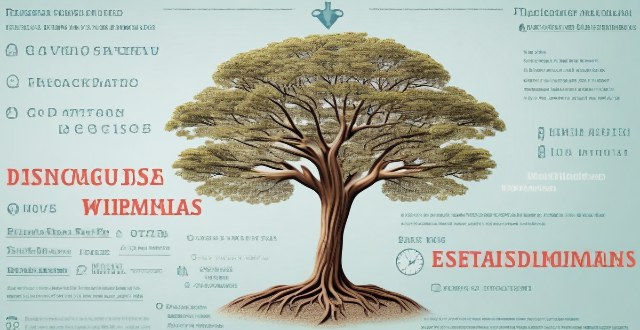The text discusses the differences between wills and trusts in estate planning, highlighting key areas where they diverge. A will is a legal document outlining distribution wishes for assets after death, requiring witnesses and taking effect posthumously. It allows control over assets during one's lifetime and goes through probate, a public process. Wills are flexible and generally less costly to create but offer no tax benefits. Conversely, a trust involves transferring property to a trustee for beneficiaries, with creation and effectiveness varying. Trusts can avoid probate, offering privacy and potential tax benefits but at a higher initial cost and less flexibility, especially if irrevocable. Choosing between them depends on individual needs and preferences.

Differences between a Will and a Trust
1. Definition
*Will*
A will is a legal document that outlines your wishes for how your property and assets will be distributed after you pass away. It must be signed and dated by the person making the will (testator) and typically requires two witnesses.
*Trust*
A trust is a legal arrangement where one party (the trustor) transfers property to another party (the trustee), who manages it for the benefit of a third party (the beneficiary). Trusts can be revocable or irrevocable, depending on whether the trustor retains the ability to dissolve the trust.
2. Creation and Effectiveness
*Will*
- Creation: A will is created when it is signed and witnessed.
- Effectiveness: A will takes effect only after the death of the testator.
*Trust*
- Creation: A trust is created when the trust agreement is signed and the property is transferred to the trustee.
- Effectiveness: A trust can take effect immediately upon creation or at a later time specified in the trust agreement.
3. Control Over Assets
*Will*
- Control: With a will, you maintain control over your assets during your lifetime.
- Distribution: Your assets are distributed according to the terms of your will after your death.
*Trust*
- Control: When you create a trust, you give up some control over the assets placed in the trust.
- Management: The trustee manages the assets for the benefit of the beneficiaries, either during your lifetime or after your death.
4. Probate Process
*Will*
- Probate: A will typically goes through probate, which is a court-supervised process of distributing your assets according to the terms of your will. This process can be time-consuming and public.
*Trust*
- Avoidance of Probate: Assets held in a trust can often avoid the probate process, allowing for faster and more private distribution of assets.
5. Flexibility and Cost
*Will*
- Flexibility: Wills are generally easier to change than trusts, allowing for greater flexibility over time.
- Cost: Wills are typically less expensive to create than trusts.
*Trust*
- Flexibility: Trusts are less flexible once established, especially if they are irrevocable.
- Cost: Trusts can be more costly to set up initially but may save money in the long run by avoiding probate fees and reducing estate taxes.
6. Tax Implications
*Will*
- Taxes: Wills do not provide any tax advantages; assets passed through a will are subject to estate taxes unless otherwise exempted.
*Trust*
- Tax Benefits: Some types of trusts, such as AB Trusts or QTIP Trusts, can offer tax benefits by maximizing estate tax exemptions.
In conclusion, while both wills and trusts serve important roles in estate planning, they differ significantly in their creation, effectiveness, control over assets, involvement with probate, flexibility, cost, and potential tax implications. Choosing between them depends on individual circumstances, goals, and preferences.